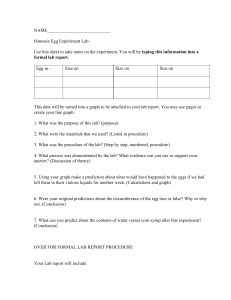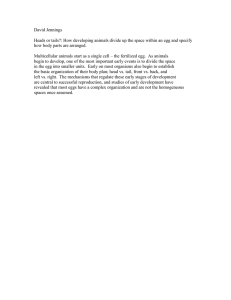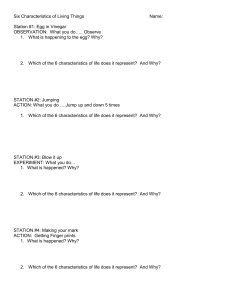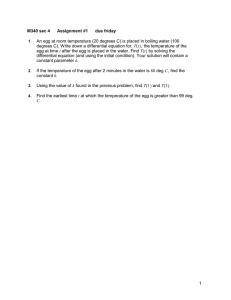Valencia Activity 1.1 Experiment on Thermodynamic Systems-converted
advertisement
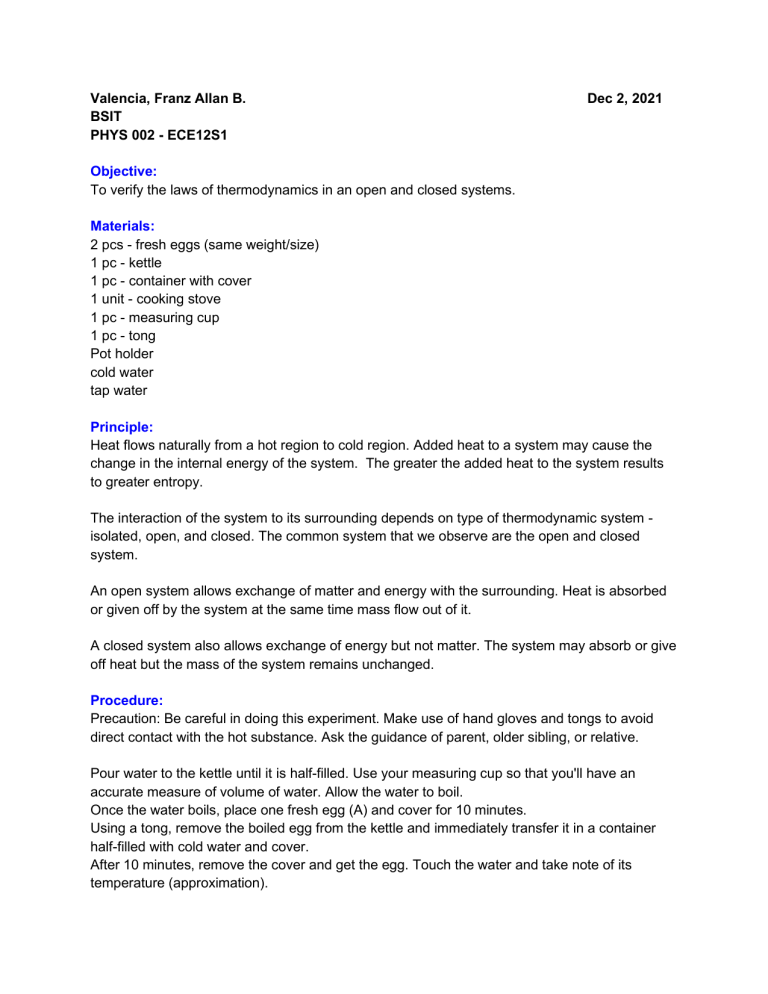
Valencia, Franz Allan B. BSIT PHYS 002 - ECE12S1 Dec 2, 2021 Objective: To verify the laws of thermodynamics in an open and closed systems. Materials: 2 pcs - fresh eggs (same weight/size) 1 pc - kettle 1 pc - container with cover 1 unit - cooking stove 1 pc - measuring cup 1 pc - tong Pot holder cold water tap water Principle: Heat flows naturally from a hot region to cold region. Added heat to a system may cause the change in the internal energy of the system. The greater the added heat to the system results to greater entropy. The interaction of the system to its surrounding depends on type of thermodynamic system isolated, open, and closed. The common system that we observe are the open and closed system. An open system allows exchange of matter and energy with the surrounding. Heat is absorbed or given off by the system at the same time mass flow out of it. A closed system also allows exchange of energy but not matter. The system may absorb or give off heat but the mass of the system remains unchanged. Procedure: Precaution: Be careful in doing this experiment. Make use of hand gloves and tongs to avoid direct contact with the hot substance. Ask the guidance of parent, older sibling, or relative. Pour water to the kettle until it is half-filled. Use your measuring cup so that you'll have an accurate measure of volume of water. Allow the water to boil. Once the water boils, place one fresh egg (A) and cover for 10 minutes. Using a tong, remove the boiled egg from the kettle and immediately transfer it in a container half-filled with cold water and cover. After 10 minutes, remove the cover and get the egg. Touch the water and take note of its temperature (approximation). Peel the egg and cut it into half. Take note of the egg yolk's appearance. Repeat steps 1-5 except in step 2 cook the egg (B) without cover. Data & Results: Eggs Approximated final temperature Appearance of egg yolk % cooked A 40°C Dry, solid 100% B 30°C Partially cooked 70% Observations: The covered kettle tends to overcook the egg because it becomes a closed system, so the boiling water heats up faster compared to the kettle without cover, which is an open system wherein the premise of heat on the water evaporates. Conclusion: Water tends to heat up faster in a closed system, so the egg being soaked on boiling water get cooked rapidly, while water in an open system on the other hand has a slower process of cooking the egg.
